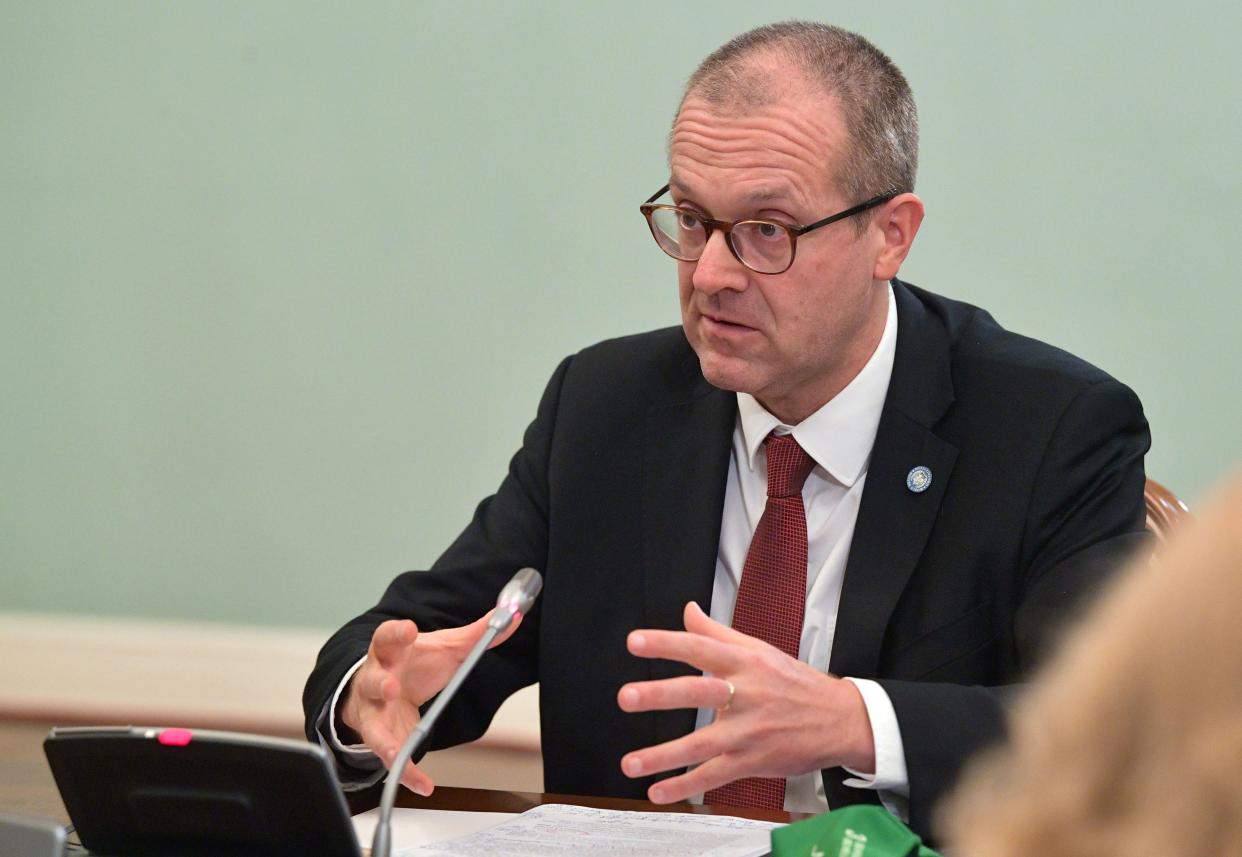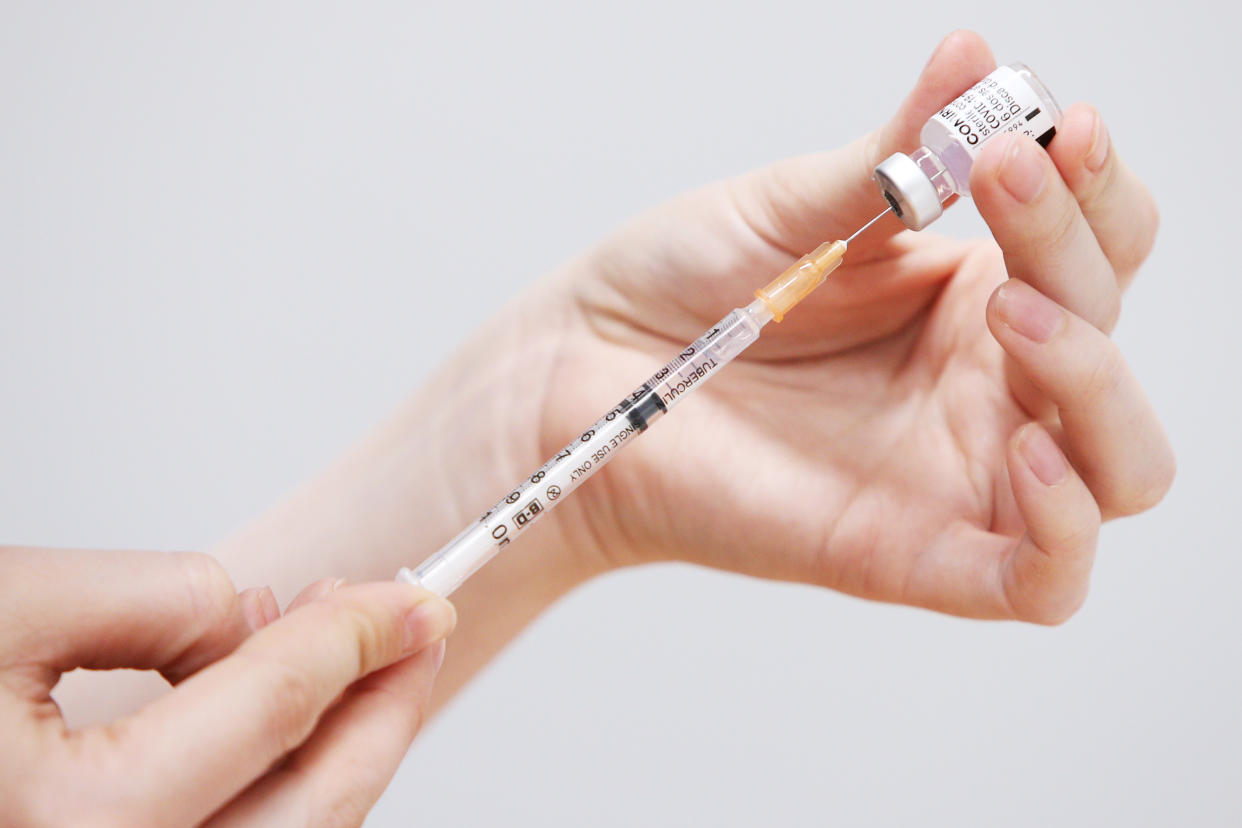'Utterly irresponsible': Euro 2020 blamed for spike in COVID cases across Europe after weeks of decline

The World Health Organization (WHO) has said crowds mixing in Euro 2020 host cities has contributed to the reverse of a steady decline of cases across Europe for the first time in more than two months.
A 10-week fall in new infections across the continent has come to an end and a new wave is inevitable if football fans and others drop their guard, WHO senior emergency officer Catherine Smallwood warned.
"We need to look much beyond just the stadiums themselves," Smallwood told reporters. "We need to look at how people get there, are they travelling in large crowded convoys of buses? And when they leave the stadiums, are they going into crowded bars and pubs to watch the matches?
Travel and an easing of social restrictions are also driving the growth in cases, the WHO said.
Hans Kluge, the regional director of WHO Europe, said a new wave could break out by the autumn.
With COVID restrictions varying from nation to nation, crowd sizes have ranged from completely full, such as 60,000 in Budapest, to 25-45% capacity in other venues where there have often been around 10-15,000 spectators.
UEFA said it was fully aligned with local health authorities' guidelines at every venue.
German interior minister Horst Seehofer said UEFA's position was "utterly irresponsible".
"I cannot explain why UEFA is not being sensible... I suspect it is due to commercialism," he told a news conference.

More people have started to mix and travel following a gradual relaxations of restrictions, resulting in a 10% increase in cases last week, Kluge said.
Scotland's health authority said 1,991 people had been identified as attending a Euro 2020 event while infectious, of whom 1,294 had travelled to London and 397 gone to Wembley where England played Scotland.
Finland said more than 300 nationals were infected while supporting their team.
Italy has warned any fans from England not to try to use loopholes in COVID-19 travel restrictions to sneak into the quarter-finals Euro 2020 clash between England and Ukraine in Rome on Saturday even if they have a ticket.
Increased hospitalisations and deaths
Cases for the last seven days in Europe stand at 427,024, while there were 6,704 deaths, according to WHO Europe data.
The increase comes as the Delta variant – formerly known as the Indian variant – continues to spread.
Kluge said this had resulted in “increased hospitalisations and deaths”, with the Delta variant predicted to become dominant in Europe by August.
As vaccination programmes continue to be rolled out to fight back against COVID, Kluge highlighted that Europe will not be fully vaccinated by next month, with 63% still yet to receive their first jab.
He warned that a new COVID wave could break out before autumn because of “new variants, deficit in vaccine uptake and increased social mixing”.
Watch: What you need to know about COVID-19 variants
Despite vaccines appearing to break the link between cases and hospitalisations, Kluge said people must “remain disciplined” even after restrictions are relaxed or Europe may suffer excess deaths.
He urged people to take both doses of the vaccine when offered to stop future variants emerging and to combat the threat of the Delta variant.
However, he said more needed to be be done to increase vaccine coverage, which stands at 24% across the region – significantly lower that the recommended 80% coverage of the adult population.
Europe is still behind the UK in the Delta outbreak, where it is now the dominant COVID strain.
Due to Delta's increased transmissibility, the UK has seen a spike in cases, with 27,989 recorded on Thursday – the highest figure for five months and nearly 10,000 higher than the number the previous week.
However, deaths remain low, with 22 recorded on Thursday, meaning Boris Johnson is widely expected to relax more restrictions on 19 July.

In Germany, new COVID cases on Wednesday increased by 806, while France saw an increase of 2,457 from the previous day.
Italy, where the England team play Ukraine on Saturday’s Euro 2020 game, saw a daily increase of 776.
However, the smaller case increases can be explained by the Delta variant not yet being dominant in Europe – and experts will be keeping an eye on if those numbers spike as it spreads.
Figures released on Wednesday showed that 84.9% of adults in the UK have had a first dose of the COVID vaccine, while 62.4% of adults have had both doses.
Boris Johnson has insisted that the target date of 19 July for removing COVID restrictions is “very likely”, despite the recent upsurge in cases.
Watch: Minister: COVID data is telling a good story



